Taxi Story - The Kurd
I guess he will be one person that has a sense that justice was served today.
Random Tales from my Journals, with a bit of Creative Writing thrown in, spiced up with other pieces that catch my eye.
Posted by
Pickledeel
at
4:49 pm
2
comments
![]()
Labels: Taxi Story
I was explaining to a colleague today how the Pickled Eel came about.
It has a lot to do with alcohol.
The story is here.
In an attempt to "brand" the blog a little - and stop being so darn serious about everything - I whipped up a quick sketch of an eel (with apologies to all the morays out there) and a very talented colleague (Matthew) of mine has morphed it into the button over there at the top of the column. Being a typical artistic perfectionist, he wants to fine tune it - sort out contrast and so on. Being the impatient fellow that I am I couldn't wait to see it up on the page.
he wants to fine tune it - sort out contrast and so on. Being the impatient fellow that I am I couldn't wait to see it up on the page.
Matthew has an excellent photo and diary website - he is an excellent photographer and his shots of the Antarctic and other places around the world are worth a look.
So too his "Pie of the Day" section. Did you know, for example, that Pies are illegal in 3 US states due to the pie massacres of 1987, an event kept quiet by Pie fanciers all around the world.
Of course you didn't, but beware his sense of humour...
Posted by
Pickledeel
at
4:06 pm
3
comments
![]()
Labels: Eels
 Previous Chapter
Previous Chapter
Posted by
Pickledeel
at
1:21 pm
1 comments
![]()
Labels: David Paton
OK, I am a tragic F-111 fan. Just found this video on YouTube. It is a montage of Royal Australian Air Force F-111 video clips which contains a couple of people I know. I may be mistaken but at the beginning of the clip the crew member doing the preflight walk around looks remarkably like Shorty. (internal Blog link) Lost with Hobbs in Malaysia in 1999. And later on in the clip the reclining pilot is Geoff Shepherd(leaving site). He was CO at 6 SQN when I was there and went on to become the Air Commander, Australia and is now the Chief of the RAAF. Affectionately known as "Blinky" throughout the squadron for an involuntary tic he had, which only went away when it was time for his aircrew medical - the worst kept secret at the unit. His fellow pilots attributed that tic to his Mirage III ejection. Probably part of the squadron "urban legend" fabric but it made for a good story.
And nicely slipped into the middle of it all is a brief extract from the controversial Pavetack image run on the Australian Defence HQ - sometime in 1988 or 1989 if I recall correctly. The Air Force made the pungent point that those crosshairs could be placed on anyones office pretty much at will. It was an exercise that upset a few politicians and bureaucrats but the F-111 folk loved it.
The video quality is awful - just go along for the ride!!
Posted by
Pickledeel
at
11:14 pm
4
comments
![]()
Labels: Aardvark
 In 2005 David Paton, good friend, mentor, example, and inspiration died after experiencing an aggressive cancer. I flew to New Zealand to attend his funeral. On the flight back I started writing some notes that were intended to capture something of what David meant to me. Taking a deep breath I thought I would share them more widely here on this blog. They are less coherent than I would like but they tell a story of what a difference one life, honestly lived, can make to those around them. These notes are offered up in 15 chapters which I will post out over the next fortnight.
In 2005 David Paton, good friend, mentor, example, and inspiration died after experiencing an aggressive cancer. I flew to New Zealand to attend his funeral. On the flight back I started writing some notes that were intended to capture something of what David meant to me. Taking a deep breath I thought I would share them more widely here on this blog. They are less coherent than I would like but they tell a story of what a difference one life, honestly lived, can make to those around them. These notes are offered up in 15 chapters which I will post out over the next fortnight.
And in order that you can put a face to a name, here he is, on the Stewart Island ferry, catching some "zeds". Or "zees" depending on what part of the world you hail from.
I have no memory of the beginning but for me David’s story really starts with his mother. Nell to few and Mrs Paton to us. I remember her as a grey haired, diminutive old lady. She was married to a laughing grandfather with hair growing out his ears, a tanned but balding dome – save for the occasional wisp of forgotten hair, woollen shirts and bushy eyebrows under which danced one sparkling eye and another that would occasionally drop out of its socket, to the consternation of my sisters and the delight of my brothers. A glass eye. Appearing among the mashed potatoes after grace was said. His name was Jack. He had a stumping, gruff walk – told us he had “a bone in his leg from the war” when we asked why he walked like that. Jack and Nell had three sons and one daughter. The children went off and did their high schooling at boarding school so we did not see them too often although David had finished his schooling by the time we arrived in the district. So David was always around. A highlight, and a delight, was to spend any time – a day, a weekend, school holidays – at “the Patons”. Their house was an old unpainted place surrounded by vegetable gardens, cats, fruit trees, and an old wire fence that kept poultry out. You walked through a wire gate with a frame that went up over your head on top of which for many years two little wind vanes spun, made from the tops of jam tins, soldered into shape and painted red and white by Alistair. After letting the gate clack shut you stepped across a little courtyard, rainwater tank to your right, and walked in the back door from which hung a perpetually loose brass door handle.
Behind that unpainted door was a cosy den, a very special place. It was Mrs Paton’s kitchen. As you walked in, immediately at your left shoulder was a blackboard and underneath that a bench seat. Whenever we visited we drew all sorts of things on that board, the profile of a Cessna being one of the favourites of Butch Thurlow. Butch was a neighbour who would sit in this kitchen on Sunday evenings and chew the fat. I copied that Cessna assiduously (and am sure I could draw it from memory thirty five years later with my eyes shut) and which David would occasionally mimic. On this board were usually notes about the farm. Jobs to be done. People to call. Number of sheep crutched. Ear tag numbers. Phone numbers. And the occasional Cessna. I have memories of local lads, Butch, and Grant sitting jammed across that bench with David, legs stretched out into the heat of the kitchen and blocking all traffic, laughing and talking and enjoying each other’s company.
Stand in the doorway, doorhandle threatening to fall out as you hold it. Cast your eye around the room from left to right, and immediately after the blackboard is a door which lets you into the rest of the house. Let’s digress there for a moment. It was usually a lot cooler out there than in the kitchen. But out there, on special Sunday afternoons, Westerns were shown on a black and white television. A real highlight on a wintry day, with a fire choking on damp pine cones in the grate. We did not have television at home at the time so even today a black and white Western, with lots of shooting, improbable chases and even more improbable Indians falling off every rocky outcrop, transports me back to that room. But back to the kitchen.
To the right of the “close that thing, you will let the cold in” door was the source of memorable meals and continual warmth. A coal range burned night and day it seemed. The oven was warm when you went to bed. It was warm when you arose, regardless of the hour. From here everything from roast poultry - geese, turkeys, hens and ducks all headed for her table or tables around the parish. Mrs Paton was famous, in our house at least, for her sponges, made with her secret ingredient - duck eggs. I recollect that the rest of the district were familiar with them as well. Above the coal range was a mantelpiece littered with everything a mantelpiece should be littered with. Casting your eyes right and looking at the third wall you looked out across the sink, set in a wall to wall bench and backlit by a window that gazed out across the vegetable patch. Sometimes that window was the source of our undoing as we attempted covert samplings from the garden. Peas were a favourite target. In the middle of the room, but erring to the fourth wall, set on a threadbare carpet, was the wooden kitchen table, scrubbed smooth but always covered for a meal by a large table cloth. Around this we would scrunch up for meals, caught in a cosy haven, warmed by the ever radiating coal range oven, bustled over by Mrs Paton, and gleamed at by Jack who always loved all the madness. Bowls of steaming greens. A small mountain of steaming mashed or boiled potatoes with more butter melted across it than is good for anyone, and the ubiquitous roast poultry with seasoning we would ache for.
I never knew David’s upbringing. He was 20 when we arrived in the parish and I was a newly minted 5 year old, with a new yellow toy car and a fear of his dogs. It was 1966. 15 years difference at that point is more profound than at the other end of the continuum. But over the next ten years I was fortunate to have a taste of what David grew up in and what he came back to after he finished school. And, in a sense that from which he never really left. It is a context that is made all the more poignant when I later learned that Mrs Paton prayed for twenty one years that someone would come to the parish to teach her children about Jesus Christ. For those 21 years the parish pulpit had either been vacant or had been led by pastors who suffered the liberal thinking of the times. Naturally as a 5 year old I was ignorant of these things but the whispers of those dead times came to my ears as I moved into my teens.
Posted by
Pickledeel
at
12:27 pm
1 comments
![]()
Labels: David Paton
Just before Christmas our news was full of the incomprehensible - the mayor of a country town (Tamworth (Google Earth31° 5'58.45"S 150°55'22.31"E)) here in Australia declared a group of Sudanese families unwanted in his town. Some rolled their eyes and simply put it down to our redneck community. Others, including many in Tamworth, were outraged. In the middle of it all the Sudanese remained poised, apolitical and out of the fray. The Australian Refugee Council put it all down to ignorance.
They are partly correct. If James Treloar (the mayor no less) had been on an Emirates flight out of Dubai last year and shared the same experience with these Sudanese families as many of us did, he may have a different perspective.
As we prepared to board our Airbus back to Sydney a large group of tall and elegant Africans were herded out of a side door into the departure lounge. They were all dressed in the same light blue tracksuit. They might have been all part of a sports team except there were no logos and these people were unusually shy and unsure of themselves. It was clear they were relying on a middle aged woman who behaved like a good master sergeant and saw them through the checkpoints and into the aircraft.
I had settled into my seat - well up the back but where I could get a window seat, some peace and quiet (it is a 14 hour flight) and some leg room. I was doubly blessed by having the seat beside me vacant. We were delayed by about 30 minutes as the Emirates staff reorganised all the seating to put these Africans all in one place - right down the back of the plane. They asked if I would prefer a seat up the front, instead of sitting with these people. I felt slightly affronted but the European flight attendant hastened to add that their BO was offensive. I declined - I am at the very least, a window seat hog. But I did not think BO was enough to deter me.
I was fairly warned. The BO was easily the worst I have ever experienced - and I have experienced my fair share in the military while in the field. Terrible. Pungent. Acidic. For 14 hours!
These Africans were very subdued. But they were an interesting mix. Young couples with children. Unsure of what they were to do in the plane. Very reliant on their Master Sergeant to translate for them. To help them with their meals. The Emirates staff were brilliant and went out of their way to look after them. Patiently explaining things to them. Showing them how the inflight entertainment worked. How the headphones worked. Giving them a tour of the toilets to show how they worked. How to work those infernal folding doors. Watching young children work out a Pokemon game was pretty special. Can you imagine it? What a flurry of overwhelming experiences these kids were soaking up. The Master Sergeant was later explaining only a couple of the adults had seen a TV screen before. For everyone else this was all so very new.
In a quiet period I went and spoke to the Master Sergeant. She told me they were Sudanese migrants to Australia. That this was the second flight in their lives, the first being the Russian cargo plane that had flown them out of the desert into Dubai. In Dubai they were taken out of their rags and placed in the tracksuits, with no opportunity to bathe or shower. Some of the children were wearing clothes for the first time. All of these young couples had no extended family - they had all been killed or had died through malnutrition. But mainly killed. The lack of other family was one of the factors that determined their eligibility to migrate to Australia. No wonder they looked shy and unsure of themselves. Twenty four hours earlier some of them had never seen an aircraft before.
As we approached Sydney I was delighted to discover that my seat was going to give me a view of the harbour, the bridge, the Opera House. With the sun just rising over the Pacific Ocean this perspective is Sydney at its shiny and glistening best. Dragging my eyes away from the window as we straightened up over the bush north of Sydney to start our run in I could see the boys, about ten to twelve years old years old, sitting in the centre, straining to see out the window. The attendants had just strapped themselves in so I signed for the boy closest to me to come over and sit at the window (I had that spare seat next to me). He was quick to understand and unbuckled and jumped the aisle, we swapped seats and he pressed his face to the window, both filthy hands grasping the wall.
The Harbour slid in to view and the bridge, buildings, harbour, Opera House and bush were all set off in a glorious landscape under a gorgeous blue sky. It is a fantastic sight. As we descended over this scene and it started to drop behind us the face at the window turned to me with saucer eyes which were full of wonder. And in one breathless, rasping whisper exclaimed to me in a quizzical tone of discovery "Australia?!" It actually sounded more like "Oh-dah-lia".
Never have I been so glad to give up a window seat. It took all of me to compose myself and not weep, and to assure him it was indeed Australia. I smiled, wiped away a tear and assured him again that this was so, and that he was very welcome to be here. He nodded and turned back to the window - in time to watch the suburbs close up and to experience the rush over the perimeter fence to land with a steady bump and to arrive at his new home.
While we taxied in to the terminal I sat there and watched this lad and silently gave thanks that I was part of a country that could offer itself as a refuge. That could share its wealth and resources and opportunities with those who had nothing, and with those who were losing what little they did have(family).
Since then I have often wondered where they ended up - now I see they are in Tamworth. With the same composure I saw in the Airbus. And clearly out of their tracksuits. I hope they understand the mayor is out of step, and that there are many in this country who love the fact we can share what we have. I hope James understands his role of custodian carries with it a requirement to be generous. For except by the grace of God there go the rest of us.
Posted by
Pickledeel
at
4:50 pm
0
comments
![]()
Labels: Refugees

Sharing something here from my Christmas Day.
Love is born
With a dark and troubled face
When hope is dead
And in the most unlikely place
Love is born:
Love is always born.
From
"When I Talk to You
A Cartoonist Talks to God"
By Leunig. A brilliant cartoonist, satirist, and social commentator. His website is worth a visit.
Posted by
Pickledeel
at
11:03 am
0
comments
![]()
Labels: Leunig
Our newspapers are reporting a downturn in tourists visiting Bethlehem at this time of the year. Just as they reported last year. I visited Bethlehem a few years ago when tensions were escalating and getting across the border into Palestine was problematic. The checkpoint was a flux of tension and a crossroads of hate. Those in uniform treated us with disdain and we were pushed around. Regardless of what passport we were carrying. I was walking through with some French and Germans. A French lady who had been through before, and who had become our guide, advised us to make like the Palestinians and to keep our mouths shut. So we did and after a long, hot, and dusty wait we were through.
In Bethlehem we found a hive of activity and the winding walk up to the Church of Nativity was one long construction site as new buildings were going up, new fibre optic was being laid, and plumbing dug in. There seemed to be a real energy in the air, and we were chatted to by children in the street and waved at by Palestinians who were keen to sell us trinkets and badly made brass souvenirs. An enduring highlight was a schoolbus that crept past us with smiling kids at the windows, many of whom yelled out “hello” and “bonjour” – a telling counterpoint to the border crossing experience of a few minutes earlier. Children are great equalisers.
I visited the regular tourist stops and was impressed with the various claims made by those who insist Jesus was born at this or that spot. But I was more convinced by the presentation of a cave, one of many stables around Bethlehem, that seemed to my imagination to be a more credible place of his birth. And I was even more impressed by the realisation that these hills and vistas were those also walked and seen by Jesus – those impressions had more impact than any particular church site.
Church of the Nativity Forecourt But over the years the enduring remembrance of Bethlehem has been the profound divide between Israelis and Palestinians, all on top of the place where the Prince of Peace was born and not too far from where he died. There is a terrible irony and pathos in what Bethlehem stands for today, when in its roots there is something more powerfully contained.
But over the years the enduring remembrance of Bethlehem has been the profound divide between Israelis and Palestinians, all on top of the place where the Prince of Peace was born and not too far from where he died. There is a terrible irony and pathos in what Bethlehem stands for today, when in its roots there is something more powerfully contained.
Micah knew as much 700 years before his birth.
"But you, Bethlehem Ephrathah,
though you are small among the clans of Judah,
out of you will come for me
one who will be ruler over Israel,
whose origins are from of old,
from ancient times."
Therefore Israel will be abandoned
until the time when she who is in labour gives birth
and the rest of his brothers return
to join the Israelites.
He will stand and shepherd his flock
in the strength of the LORD,
in the majesty of the name of the LORD his God.
And they will live securely, for then his greatness
will reach to the ends of the earth.
And he will be their peace.
And there was a final irony that I have never understood – it was more difficult for us to cross the border from Israel into Palestine to visit Bethlehem than it was to return to Israel. Over in seconds and after an idle glance at our passports. Maybe we had just struck an ornery security detail on the way in.
On this Christmas Day, and hereafter, may He be your peace.
Posted by
Pickledeel
at
11:57 pm
0
comments
![]()
Labels: Israel
A remarkably evocative clip. Sung by Quynh Anh, an expat Vietnamese living in Europe. Having been to Vietnam I found it an evocative piece of video and music. All the more so for their disastrous past and their passion for the present. The English words contain none of the magic of the lyric French, or the romance of that language. In any event, best watched and heard, not read.
Posted by
Pickledeel
at
12:30 am
0
comments
![]()
Labels: Vietnam
Cafe in Lane Cove, on Longueville Road. Two days before Christmas and the sweat sticks to my skin The day is overcast and threatens, then delivers, even more humidity as the sky lets loose a light shower, closes up, then releases another once the pavement has dried off.
The heat is exacerbated by a furious kitchen that churns out lunches and coffee. It is a busy place abutting a small village shopping centre that is bustling with last minute shoppers. Like myself. Who is not only a last minute shopper but a two minute one as well. A hunter gatherer approach to shopping.
Around the corner eight year old girls play a cello and violin and sing. They and their instruments are decorated with tinsel, as if to make up for the fact they are not in tune, in sync, and clearly have only put their ensemble together in the last two days since school closed for summer. And competing with the two boys playing carols on their trumpets two shopfronts down. Also out of tune but fervour and filthy lucre drive their performance. Each has an instrument case open which catches a generous shower of silver from bustling shoppers. It's that time of the year after all.
The obligatory black T-shirts and strappy tops adorn the girls behind the counter and those who rush around the tables which spill onto the street. Entirely appropriate attire for this glistening sweat day. And good for those who admire a tanned shoulder or decorously adorned decollete. Don't we all?
Kids saunter past with foam reindeer antlers on their heads, mouths rimmed with chocolate. Some are well behaved and fresh to the street. The rest have clearly been out all morning and are irascible and ready for home. Faces of their parents confirm it.
Plates clatter, bottled drinks clink as the fridge is raided. Cutlery chatters as it is unloaded from the dishwater. As the dishwasher door had opened the sharp smell of detergent bit the senses and a billowing cloud of hot vapour rolled to the ceiling and into the cafe, adding to the humidity. A five cent piece tings off the floors as a kid fumbles his treasure and argues with mother about ice cream flavours. Happy shouts as friends discover each other.
"Mate, whadayadoing?"
"Nothing mate. Keeping my head down. Going slow. Bugger of a day."
"Yeah, mate, need a coffee to keep going."
That it is a hot coffee is illogical but no one cares, or minds.
"Who's next please?"
"James! Howya doing?!"
"Next please!?" Shouted a little louder and through yet more friends focused on catching up first, before placing an order.
Traffic creeps past, all leaking condensation onto the road from air conditioners. A shower of rain waters us all then stops again. Indian accents. Muslim headgear. Irish accents. Australian "ocker". All mixed up and adding to the tableau. S&M arrive. Shane and Mark. (Apologies to any of you who have gotten this far and were hoping for something else).
We order lunch and spend a couple of hours talking about everything and nothing. Which is part of the pleasure of these sorts of friendships. Indeed, Shane referred us to C.S. Lewis (well known for his Narnia series but for the thinking person a deeper well in his other writings) who he is reading at the moment, and Lewis' description of four loves, one of which is affection - the sort of love that is delivered without any expectation of anything in return and which, in the view of C.S. Lewis is most commonly expressed in its purest form between men. Not erotic (Lewis discusses eros in another context) I would hasten to add, but those friendships forged between men through tough times, especially war. But also common through early friendships and which can last a lifetime. Something I must dig out and read for myself.
The converse is no doubt true. At a time when male suicide rates are at an all-time high in this country how little salve might have been applied through a firm friendship? And a death prevented? What tough times do we share with reach other. What welding of friendships occurs through heat? Not much these days. We are all individuals and are all the poorer for it.
Whatever the view of C.S.Lewis, a pleasant lunchtime interlude, with pleasant company, in a great city, all at a time of the year when we are full of goodwill towards each other and we are all grateful that we are alive. Even if it is humid!
Posted by
Pickledeel
at
3:16 pm
1 comments
![]()
Labels: Personal

Well, so "they" say.
At this time of the year we are inclined to believe that is the case. We usually take what we have at our doorstep for granted. Until someone visits and we take them to the beach. And wonder why we don't do it more often. Nephew Monty, out from England with his grandfather John, are in Australia to catch up with family and, well, just because they can. So naturally we take them to the beach if it is a nice day. Today it was (always is), so we went to Avalon Beach.


Posted by
Pickledeel
at
7:12 pm
0
comments
![]()
Labels: Family
Well, the Joseph Sherfy story is starting to piece itself together. The material is a little thin at this point but the Library of Congress has been helpful, so too some resources at
Some sources hint that Joseph Sherfy was a “Reverend” but I have yet to determine if that is the case. An index of all pastors and ministers in the
In other parts of the country and at later times large numbers of Sherfys appear as Baptist Clergy. And in a war notorious for pitting brother against brother it is interesting to learn that two Tennessee Sherfys were Reverends – one fought for the south and one for the north. Their uniforms sit side by side in a museum in
Back to
“Every dwelling and farmyard left behind in the wake of the withdrawal by Longstreet’s troops had been ransacked. Notably Joseph Sherfy’s brick house on the
Joseph and his son returned on the 6th, the rest of the family the following day. It would not be too much of a stretch to guess that the Sherfys came back to find their home was a carnage house, with blood now black and congealed, body parts and gore through the house. “Filth of every description” should probably be read as a polite euphemism for human offal, refuse and other waste. Photos attest to the bloated bodies left in their fields.
To make matters worse the their barn which burned down still contained the charred of those burned alive in there. A member of the 77th NYI Referring to Sherfy’s barn burnt by cannon fire on 3 July 1863: “As we passed the scene of conflict on the left was a scene more than unusually hideous. Blackened remains marked the spot where, on the morning of the 3rd, stood a large barn. It had been used as a hospital. It had taken fire from the shells of the hostile batteries, and had quickly burned to the ground. Those of the wounded not able to help themselves were destroyed by the flames, which in a moment spread through the straw and dry material of the building. The crisped and blackened limbs, heads and other portions of bodies lying half consumed among the heaps of ruins and ashes made up one of the most ghastly pictures ever witnessed, even on the field of war.”
This is all getting a bit morbid I suspect. But imagine these people with their teenage family (and younger) coming home to confront and clean up this mess. We understand the people of Gettysburg, due to stench from the dead animals, men, blood, piles of amputated limbs, carcasses from the animals butchered by soldiers, outhouses and sinks (latrines) filled to capacity “most everyone walk around with a bottle of pennyroyal or mint oil” to alleviate themselves from the noxious odours and that many folks were unable to open their windows until the effects of frost and cold weather arrived (thanks Ed). That gives us some idea of what the Sherfys would have had to tolerate. What impact did this have on the kids?
So imagine if you will the appalling things this family confronted. Bloody quilts. Their clothes and fittings bloodied and scattered in bloody heaps across their yard and through their house. Blood covered floors and walls. Stinking carcasses. Severed limbs. Human offal. Life could hardly ever be the same. There is more to the Peach Orchard than eating those peaches!
Posted by
Pickledeel
at
12:16 am
1 comments
![]()
Labels: US Civil War
Family is having a handicapped kid.
Family is having a handicapped kid, who some close to you want locked up.
Family is having a handicapped kid who prompts parishioners to shift to different pews.
Family is having a handicapped kid which means siblings friends won’t stay over.
Family is having a handicapped kid who community services don’t want to know about.
Family is having a handicapped kid about whom some relatives just don’t want to know or understand.
Family is having a handicapped kid which means holidays are not.
Family is having a handicapped kid that destroys your goods and chattels.
Family is having a handicapped kid who can’t be managed at school.
Family is having a handicapped kid who others laugh at.
Family is having a handicapped kid who does not know her own strength and hurts you.
Family is having a handicapped kid that requires 24 hour care and supervision.
Family is having a handicapped kid who prompts other patients in the waiting room to leave.
Family is having a handicapped kid with a syndrome not understood and for which there is no cure.
Yet...
Family is having a handicapped kid who loves unconditionally.
Family is having a handicapped kid who does not give a tinkers toss that the parishioners moved to another pew!
Family is having a handicapped kid who loves life.
Family is having a handicapped kid who is your own!
Family is having a handicapped kid who lets us know very quickly who are worth knowing and those who can go their own way.
Family is having a handicapped kid who has a wicked sense of humour.
Family is having a handicapped kid who loves practical jokes.
Family is having a handicapped kid who is her own person.
Family is having a handicapped kid who teaches us humility (learned very slowly).
Family is having a handicapped kid who has introduced us to people worth knowing (have I said that already? Must be important).
Family is having a handicapped kid who is, well part of the family.
Family is having a handicapped kid – for which we would do it all again.
Family is having a handicapped kid – well part of it anyway,
Meet Jocelyn.
Posted by
Pickledeel
at
9:45 pm
8
comments
![]()
 The Peach Orchard at
The Peach Orchard at
One of the things I appreciate about Gettysburg, so long as I don’t arrive there behind 43 coach loads of boy scouts (!) is the sense you get of what impact the battle had, not just on the soldiers, but the community as well. There is something about the way the battlefield is preserved that engages you, at all sorts of levels. That “something” is assisted by the way the National Parks have attempted to keep things as they were in 1863. So the Wheatfield has an impact born of souls you seem to be able to touch. The Peach Orchard gives you a similar sense, of being on the farm as it was. You take a peach and eat it and keep half an eye on the farm house just in case Joseph Sherfy appears, brandishing his shotgun.
Joseph Sherfy was the owner of the Peach Orchard. Larger then than it is now, Joseph also grew apples and operated a cannery here. A label here from one of his cans.
But Sherfy for me encapsulates all that you wonder about
What on earth did he make of all this? Did the State of
I can’t seem to find anything about Joseph and his family after the war. They seem to have been fused into the background story of 
Posted by
Pickledeel
at
4:41 pm
3
comments
![]()
Labels: US Civil War
We were idling through the crowd, avoiding the hustlers and steering away from the buskers and beggars, with one eye on the watch and one hand on the hip pocket. At one point, to avoid some brightly lit, cheaply priced shops we moved towards the kerb though were kept from the road by a wrought iron fence. We shuffled along trying to outflank the cheap pits and while we did so were completely startled when a loud voice bellowed from beside us “Nickel for some white trash?!”
For a moment we had no idea where the voice, increasingly strident, was coming from until we looked into the bin at the side of the road and saw a pair of eyes peering out at us from inside a trash can - built in the style of those found at MacDonalds or other fast food places. Somehow he had gotten in there and had hung a little tile out the front simply titled “white trash”. If a passer-by missed the sign he yelled out instead – lifting the flap to get their attention. I don’t recall if he got a nickel from us but he sure made us laugh.
I hope he made a lot of money. A very self deprecating approach to begging, nicely claiming a pun as a way of life, employing some self mockery at the same time – and touching a raw nerve in US culture that is not always seen in such a humorous light. In southern states reference to white trash can often have a pretty raw edge to it.
We made the flight with time to spare, no one at the airport missed us. And "white trash" still makes me laugh when I think about him. I hope he is OK.
Posted by
Pickledeel
at
10:35 pm
0
comments
![]()
Labels: USA
USS Arizona still leaks fuel oil in a steady blobby rain, called by some the Black Tears of the 
Iconic as the image that symbolises that “day of infamy” USS Arizona now lies just below the surface of the harbour. As a visitor you can spend some time looking at the hull shadowed in the water, and be startled by the wall of names that remember the hundreds of men who perished in her. Many from the same families - see how fathers, sons and uncles all vanished together. An assignment policy the US Navy overturned as a result of this disaster.
That wall of names was a revelation for me one hot
He had the good sense to keep the brief simple. He said they were here to grieve, to express their regret. And suggested I walk up to the wall and see what was happening up there. He added that his grandfather was killed on 7 December 1941 but that he wished his grandfather could see what was happening here today. Then signalled with his chin for me to make my way through the crowd to the wall of names. Perhaps he sensed my agitation. Or heard the indignation in my voice.
I paused for a moment, caught in a crowd and noticed for the first time the serious stripping of garlands and the tossing of flowers onto the water from the edge of the memorial and through a hole in the floor. Everyone was doing it. I was the exception. All were sober. All were silent. The slap of the water on the barely visible turret housing, and on the memorial pylons was all that could be heard.
Finally making my way to the wall of names I was confronted by a wall of flowers and a veil of tears. The flowers were heaped up over a plinth that is located in front of the wall, and over the rope that keeps visitors away form the wall. The tears coursed in silence down the faces of elderly Japanese who stood stiffly at attention. Before they bowed gently and about turned and made way for others. Here was a very different perspective altogether and my about-face was total and instant. In humbled shock I could not tear myself away.
Nor could one old Japanese gentleman who was bowed from the waist, at complete right angles. His tears splashed on the deck. But there was no sound. With a tight timetable of tenders coming and going with visitors a Parks officer had to gently help him away from the wall and back to the boat. I followed, the last to leave. As I did the Parks Officer who had suggested I see what was happening at the wall nodded to me. “Those Japanese who visit this place are usually more sorry about what happened here than we are” he said. Words that rang in my ears. The return trip, only 20 minutes or so since my outward leg, carried a very sobered and humbled me. These people had taught me a lesson about humanity that I hope I don’t forget.
It was certainly all brought to mind with this photo in the weekend paper of Zenji Abe, former Japanese pilot who was one man whose bombs struck the USS Arizona in 1941. His posture suggests to me the same regret I saw the day I visited the memorial. See his hand touch the names. And see the names below – was that a Johnson family who lost four men in one fell disaster?
Some of the great things that have come out of conflict have been the powerful reconciliations forged afterwards. We are capable of so much which is corrupt. But capable of so much compassion as well. It’s a shame the latter is often most profound when it is born out of the former.
Posted by
Pickledeel
at
2:49 pm
1 comments
![]()
Labels: USA
20 September 2006. We finally dropped into
Including a bunch of soldiers preparing to board a bus, looking surly and half asleep, Captain trying to get them to line up properly and to stand in order while their baggage was being stacked high on the bus. That made me grin to myself. Military conscripts anywhere in the world are all the same. They know what a straight line looks like but passive surliness, spiced with some insouciance, without direct disobedience, is just the perfect mix with which to get your own back at your officers. I know the formula well and fancy I was rather expert at it. The Captain was clearly rattled enough for me to keep my camera in my pocket. No need to prod the dragon.
We were dropped off at our hotel which boasted “grand” in its title somewhere. It was a pile of rubbish actually. With the usual Chinese inability to provide quality service. The one thing it had going for it was the size of the room. However the whole place was remarkably musty and we were forced to open windows – onto the city reputed to be the most polluted in the world – clean the bathroom with bleach (that shopping expedition is another story in itself) and to keep the air-conditioning turned off. In fact I think the whole musty/mould problem was the air conditioning. But we slept there in the warm air of late summer, mixed with dust and smoke, together with the noise of people and traffic bustling away six stories below and the trains bellowing through to the Russian border, 
Four weeks after we were there the sorry story of
Posted by
Pickledeel
at
6:54 pm
0
comments
![]()
Labels: China

In 1981 I spent six months on a training course in Toowoomba. Semi rural Queensland. It was a bachelor's life. And thoroughly pleasant for that. I sketched this old stone church modestly posing behind a large pinus radiata, but parading with something more exotic in its other garden. These sorts of buildings lend themselves to sketching. But I may have been attempting some sort of atonement for my primary school stories of churches. Most of those stories and the accompanying sketches have the church burning down. A child psychologist would have a field day with that.
Posted by
Pickledeel
at
6:10 pm
0
comments
![]()

Other creative pursuits in the past have included pen and ink and pen and pencil sketching. Far too little of it though since my school days. In one summer holidays from school I worked on a farm in northern Victoria. It was 45 degrees and oven hot. Most days. I sketched this one afternoon when it was too hot to do anything else. The sweat evaporated before it reached the ground - though some remains smudged in my sketchbook to this day. I tried to catch the harsh light on the gums in the background by putting little detail in there. To no effect given there is so much white background. The harvester had long gone to the cracked timber and rusty frame boneyard found in every farm. I was wary of it because the occassional black snake would rest under there.
Posted by
Pickledeel
at
6:02 pm
0
comments
![]()
Like the rest of the country I heard that we had lost two people in a helicopter accident off
In April 1984 two Mirages collided above Bluff Downs in north
There was a similar personal and community sentiment a few years later when we lost our first F-18 after it ploughed into
So when the defence chiefs get up and declare to the press they are saddened by the loss I am inclined to believe them. I am not so sure about the politicians.
There are two exceptions for me – exceptions in the sense that the grieving was not vicarious. Shorty and
Posted by
Pickledeel
at
7:11 pm
0
comments
![]()
Labels: Personal
Funny what prompts you, but I was just bouncing through another blogger's site where the author had a quick note to observe how grateful she should be for the things she has - but is often not. My own response is usually a glib line but it is a conviction as well if I test myself - that I am grateful every day that I awake, that I am breathing, and that I am upright. Sometimes I am OK with that formula if the upright bit is left out. But breathing is always a good start.
Anything from that point on is "up". That I have a family. Who loves. And who I love. That I have friends who pray for me. And the family. Who pray when the going gets tough. Who keep me grounded by reminding me that I need prayer - that is, I can't do all (any) of this by myself.
Five minutes in places like Yemen, China or Vietnam, or the Sydney Central Station reminds me that I should be grateful for he material things I have. A job. More money than most in the world. Fresh water. Choices of food. Ability to travel. Freedom to worship. To vote. To say what I think. All freedoms the majority of the global population, in all its history, has ever had, or even has today.
To the Author of all this and more - thankyou.
Posted by
Pickledeel
at
8:48 pm
0
comments
![]()
Labels: Personal
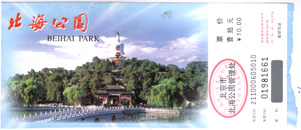
September 11 2006
I did not come away with a photo of grandma. Only one of the Pickled Eel as Emperor!
Posted by
Pickledeel
at
10:37 pm
0
comments
![]()
Labels: China
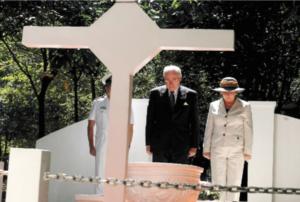
The impact is dramatic, and was for us too as she laid out her experiences with great pathos and compassion and humanity. What a remarkable thing to discover that in someone who had every human reason to harbour a grudge was a person who held no grudges. Resented no foreigner. Only wanted to build opportunities for her children and grandchildren.
We go to
Posted by
Pickledeel
at
9:16 pm
0
comments
![]()
Labels: Vietnam
Unless distant family was involved in the US Civil War there is almost nothing to connect an Australian with a war that threatened to rip a nation apart, eventually welded it, and which still resonates more than 140 years later as something sentimental and patriotic. And divisive -flint eyed southerners will tell you they are going to “do it again”.
Poetic language which says more powerfully something that touched me as I looked around that wheatfield. And since 1988 there are any number of stories about that battlefield I have gathered in my head. But one sticks out above all others. It is the story of an old man and the common spirit and vision we shared with him. It is my habit when visiting the
Posted by
Pickledeel
at
10:21 pm
1 comments
![]()
Labels: US Civil War

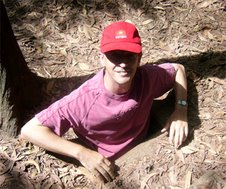
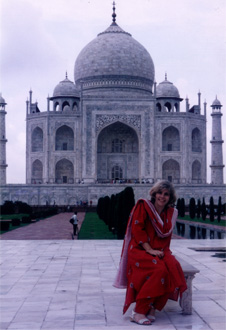
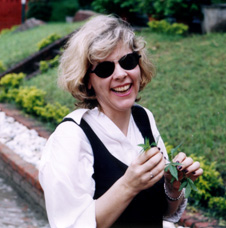
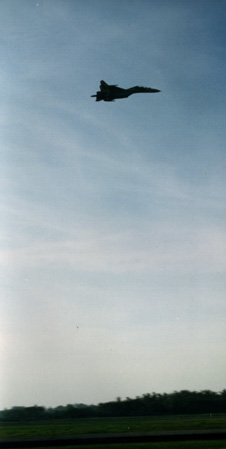
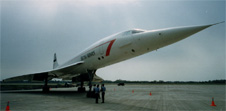

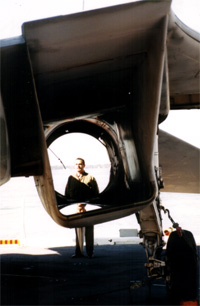
glockenspiel | |
| Definition: | A percussion instrument with a series of metal bars tuned to the chromatic scale and played with two light hammers. |
| Synonyms: | orchestral bells |

